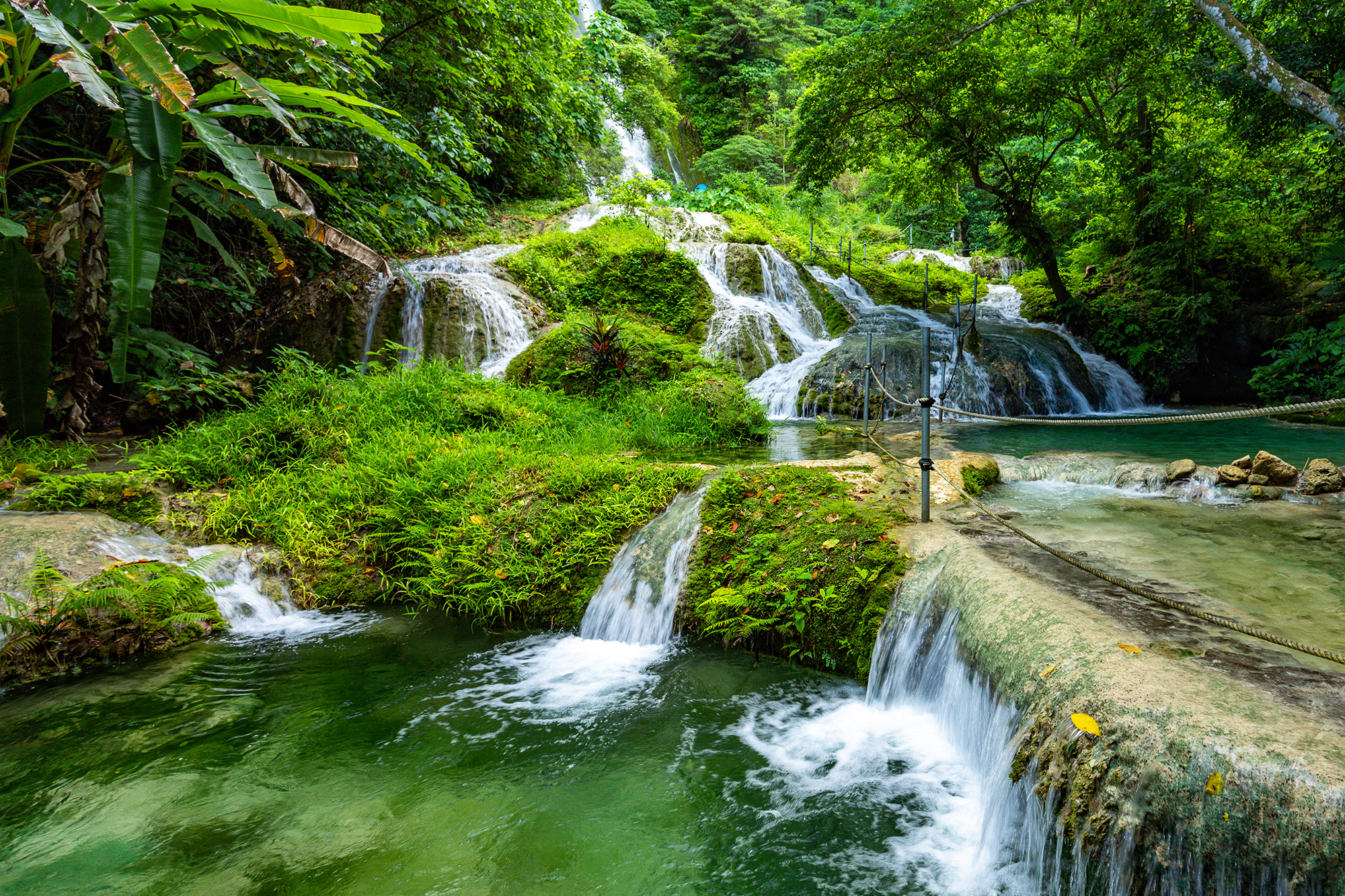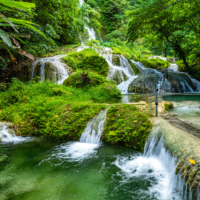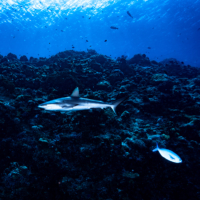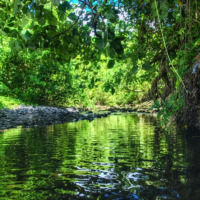The Pacific islands, renowned for breathtaking tropical landscapes and crystal-clear waters, are also garnering attention for their place on the front lines in global battles against issues such as overtourism and rising sea levels caused by climate change.
In recent years, the small countries within these islands have increasingly become leaders in ecotourism, emphasizing responsible travel to natural areas, conservation of the environment and the well-being of island communities.
From Palau’s marine sanctuaries and Fiji’s barrier reef conservation efforts to Vanuatu’s guided rainforest hikes and Samoa’s successful reforestation, the Pacific islands are demonstrating how tourism can coexist with environmental stewardship for a sustainable future.
Protecting biodiversity
Despite its status as a small island nation in the western Pacific, Palau has gained international acclaim for its pioneering efforts in marine conservation and biodiversity preservation. In 2009, Palau established the world’s first shark sanctuary, prohibiting all commercial shark fishing within its waters. The Palau Shark Sanctuary covers about 600,000 square kilometers, nearly as big as Ukraine.
This bold step was prompted by concern over illegal fishing to harvest fins for shark fin soup, as well as deaths resulting from by-catch. Sharks play a critical role as apex predators, maintaining the balance of marine life, which in turn supports Palau’s vibrant coral reefs — a major tourist draw and a key component of the country’s economy. Moreover, the creation of the shark sanctuary has had a ripple effect, encouraging other island nations, such as the Maldives, to enact similar measures.
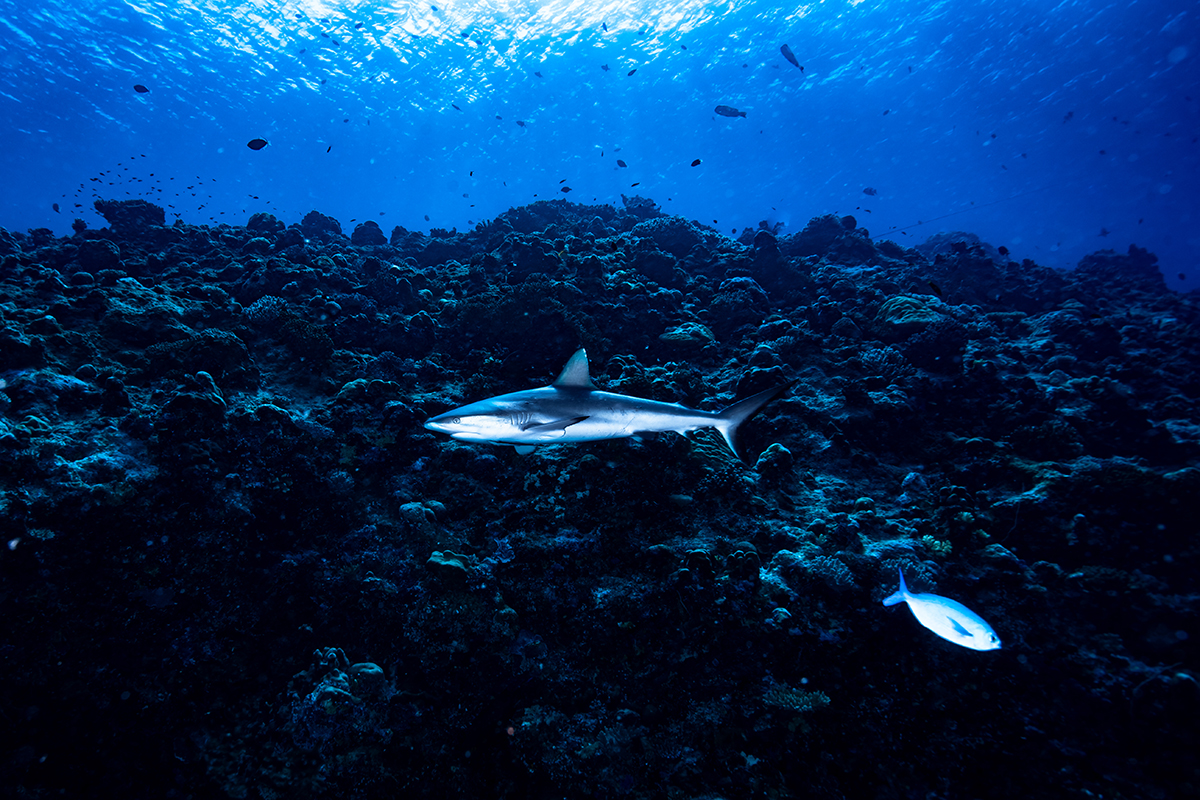
Palau’s commitment to marine conservation extends beyond sharks. In 2015, the country designated 80% of its marine territory as a fully protected reserve, prohibiting fishing and mining activities. These initiatives have helped to preserve biodiversity and reinforced Palau’s image as a premier destination for eco-conscious travelers.
Reef, mangrove guardians
In Fiji, an archipelago of more than 300 islands in the South Pacific, initiatives to promote environmental conservation are gaining traction, particularly in safeguarding its mangrove forests and coral reefs.
Mangroves are vital coastal ecosystems that provide numerous ecological benefits, including protecting shorelines from erosion, supporting fisheries and sequestering carbon. While tourism has often spurred the destruction of Fiji’s mangrove forests, community-led initiatives have been helping to protect and restore these vital habitats. More and more resorts in Fiji are even inviting guests to help plant mangroves around their facilities or donate plants to other islands for reforestation.
One of Fiji’s most ambitious conservation projects is the protection of the Great Sea Reef, the third-largest barrier reef system in the world. Known locally as Cakaulevu, the Great Sea Reef stretches over 200 kilometers and is home to an enormous diversity of marine life, including several endangered species. Fiji has implemented various conservation strategies, such as establishing marine protected areas, promoting sustainable fishing practices and engaging communities in reef monitoring and management.
These efforts are integral to Fiji’s ecotourism strategy, attracting divers, snorkelers and nature enthusiasts from around the globe. By prioritizing the health of its marine ecosystems, Fiji is ensuring that its natural beauty can be enjoyed by future generations while providing sustainable livelihoods for its people.
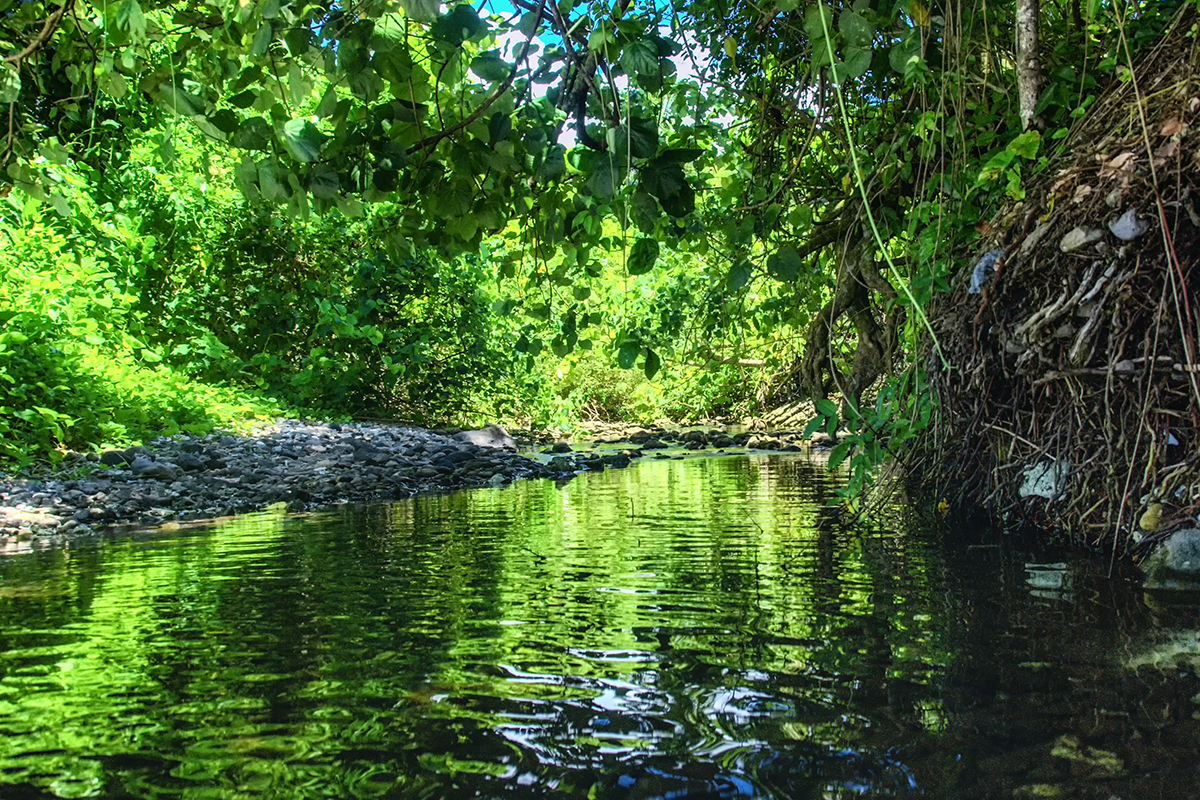
Forest hikes, bird watching
The neighboring archipelago of Vanuatu is celebrated for its lush rainforests, vibrant birdlife and rich biodiversity. The country has also embraced ecotourism as a means of promoting environmental conservation while supporting local economies. One of the standout initiatives in Vanuatu is the development of guided rainforest hikes and bird-watching tours, which offer visitors an immersive experience in the island’s natural wonders.
These tours are often led by local guides who possess extensive knowledge of the flora and fauna, as well as the cultural significance of the land. This not only provides tourists with a deeper understanding and appreciation of Vanuatu’s biodiversity, but also ensures that tourism revenues benefit the surrounding communities.
In addition to ecotourism activities, Vanuatu has implemented several conservation programs aimed at preserving its unique ecosystems. These include reforestation projects, the establishment of conservation areas and initiatives to protect endangered species. By integrating conservation with tourism, Vanuatu is fostering a sustainable model that benefits both residents and the environment.
Planting a greener future
After experiencing a decline in forest size and degraded land areas, the nation of Samoa has launched and already fulfilled ambitious plans to plant trees and ensure sustainable natural resources. From 2009 to 2012, over a million trees were planted across Samoa’s 10 islands, followed by over 2 million native and fruit trees planted from 2015 to 2020. The success of these two campaigns then led to the establishment of a new goal set forth in 2022: 3 million trees to be planted by 2028.
This nationwide focus on tree planting has also gone hand in hand with a greater awareness of the need to protect the incredible natural beauty of the islands and practice sustainable ecotourism. The government is working with organizations to reduce the environmental impact of tourists while also promoting hikes and educational tours as a way for them to learn about Samoa’s unique ecosystem.
Ecotourism expands
By leveraging their unique natural assets and involving communities in conservation efforts, island nations such as Palau, Fiji, Vanuatu and Samoa are setting benchmarks for sustainable tourism. They also highlight the ability to involve overseas travelers in those very sustainability and conservation efforts, a key advantage beyond simply being a resort destination.
As global awareness of environmental issues continues to grow, the Pacific islands illustrate the power of ecotourism in driving positive change for both people and the planet.



